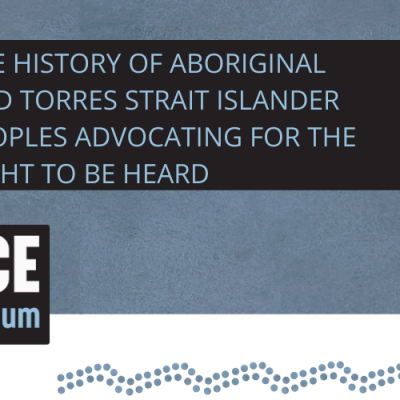Refine results
-
Commission – General28 January 2021Webpage
Senate file listing: 1 July 2020 - 31 December 2020
Senate File List for the Australian Human Rights Commission for 1 July 2020 – 31 December 2020. See previous Prefix DocSet ID DocSet title Created Date LEG 2020/1002121633 FASD Committee hearing 2/10/20 LEG 2020/1023102221 Cashless Welfare Card 22/10/20 SUB 2020/0812114948 Native Title Legislation Amendment Bill 2019 12/8/20 SUB 2020/0813103705 AFP Powers review by PJCIS 13/8/20 SUB 2020 -
Legal14 December 2012Webpage
Northern Territory Emergency Response Review Board
The government has an obligation to take action to address violence and abuse, particularly where there is evidence that is it widespread. Governments that fail to do so are in breach of their obligations under the Convention on the Rights of the Child (CRoC), the International Convention on the Elimination of all Forms of Discrimination Against Women (CEDAW) and the International Convention on… -
14 December 2012Book page
Native Title Report 2005 : Chapter 3 : The economic logic of the NIC Principles and economic development on Indigenous lands
As my predecessor pointed out in the Native Title Report 2003, native title is a political process as well as a legal process. Indigenous people enter a relationship with the State on the basis of their identity as the traditional owner group of an area of land. In some cases native title has provided the first opportunity since colonisation for a relationship of this type to be formed. -
Aboriginal and Torres Strait Islander Social Justice2 August 2023Webpage

The history of Aboriginal and Torres Strait Islander peoples advocating for the right to be heard
There is a long history of First Nations people advocating for the right to representation and participation in decisions that affect them. The events listed are a selection of moments in history when Aboriginal and Torres Strait Islander peoples have taken action to call for large-scale change by Australian governments to realise their Indigenous rights, demonstrating the history leading to the… -
14 December 2012Book page
Social Justice Report 2005 : Appendix 1 : Chronology of events relating to the new arrangements for the administration of Indigenous affairs, 1 July 2004 - 30 June 2005
This Appendix provides an overview of main events since the introduction of the new arrangements for the administration of Indigenous affairs on 1 July 2004. It commences with a summary table and is followed by a detailed description of each event. -
Age Discrimination13 May 2024Webpage

The 'Let's Talk Ageing' Series
Our new 'Let’s Talk Ageing' interview series showcases insights from thought-leaders about ageing in Australia and beyond. -
14 December 2012Book page
Native Title Report 2008 - Chapter 2
In my Native Title Report 2007, I reported on the changes that were made to the native title system during that year. The changes, which were made through two pieces of legislation which amended the Native Title Act, primarily affected: -
Race Discrimination14 December 2012Project

In our own words - African Australians: A review of human rights and social inclusion issues (2010)
In 2007, the former Race Discrimination Commissioner, Tom Calma, had a vision to develop a human rights initiative based on the experiences of African Australians, to inform future policy and programs. -
14 December 2012Book page
Social Justice Report 1998 : Chapter 4: Government Responses to the Recommendations of Bringing Them Home
Bringing Them Home - the Report of the National Inquiry into the Separation of Aboriginal and Torres Strait Islander Children from Their Families (the National Inquiry) - made 54 'head' recommendations, 83 recommendations in total [1], to address what was referred to as 'the continuing devastation of the lives of Indigenous Australians'. The implementation of most recommendations requires action… -
14 December 2012Book page
Native Title Report 2000: Chapter 2: Definition and extinguishment of native title by the common law
This year the High Court will decide fundamental issues about the nature of native title and the extent to which it is protected by the common law. In hearing the appeal of the Miriuwung, Gajerrong and Balangarra peoples from the decision of the Full Federal Court in Western Australia v Ward (1) the court will be called upon to arbitrate an old dispute that has never been settled; that between… -
14 December 2012Book page
Native Title Report 2008 - Case Study 2
The landscape of the Murray-Darling Basin (MDB) is under severe ecological stress. Issues such as salinity, poor water quality, stressed forests, dried wetlands, threatened native species, feral animals and noxious weeds are commonplace within the MDB. The reasons for this dramatic decline in river health are caused by water mismanagement including reversal of natural flow cycles and over… -
Legal14 December 2012Webpage
Native title payments discussion paper – Optimising Benefits from Native Title Agreements
The Aboriginal and Torres Strait Islander Social Justice Commissioner has produced 15 Native Title Reports which include analyses and recommendations on the operation of the native title system and its effect on the exercise and enjoyment of Aboriginal and Torres Strait Islander peoples.[1] Particularly relevant is the Native Title Report 2003, which provides a detailed comparative analysis of… -
14 December 2012Book page
Native Title Report 2008 - Case Study 1
Imagine the sea rising around you as your country literally disappears beneath your feet, where the food you grow and the water you drink is being destroyed by salt, and your last chance is to seek refuge in other lands...[1] -
14 December 2012Book page
HREOC - Annual Report 2001 - 2002: Chapter 2: Complaint Handling Section
The Complaint Handling Section had a productive year investigating and conciliating complaints of alleged discrimination and human rights breaches; providing information to the public about federal anti-discrimination and human rights law through its Complaint Information Service and community education and liaison program; and providing complaint investigation and resolution skills training to… -
14 December 2012Book page
Bringing them Home - Chapter 11
Actually what you see in a lot of us is the shell, and I believe as an Aboriginal person that everything is inside of me to heal me if I know how to use it, if I know how to maintain it, if I know how to bring out and use it. But sometimes the past is just too hard to look at. Confidential evidence 284, South Australia. -
Business and Human Rights30 November 2022Speech
Executive discretion in a time of COVID-19
Responses to the COVID-19 pandemic have required very quick action by governments. But those responses have also involved significant limitations on people’s rights and freedoms, especially freedom of movement, and implemented through executive power often with limited parliamentary involvement. -
Legal14 December 2012Webpage
Review of Australia’s Fourth Periodic Report on the Implementation of the International Covenant on Economic Social and Cultural Rights
Recommendation 2: The Australian Government pass a federal Human Rights Act that includes recognition and protection of economic, social and cultural rights. -
14 December 2012Book page
Social Justice Report 2000: Chapter 3: International scrutiny of Australia's Indigenous Affairs policies
In the past year Australia's compliance with international human rights obligations has been under scrutiny by United Nations human rights treaty committees through consideration of Australia's periodic reports under four treaties. [1] Much of this attention has focused on issues relating to Aborigines and Torres Strait Islanders. This chapter focuses on the dialogue between the Australian… -
14 December 2012Book page
Social Justice Report 2005 :
The Aboriginal and Torres Strait Islander Commission (ATSIC) was established in 1990 by the Aboriginal and Torres Strait Islander Commission Act 1989 (Cth). The Act made provisions for the establishment of 35 representative Regional Councils on behalf of Aboriginal and Torres Strait Islander communities in Australia. -
14 December 2012Book page
Social Justice Report 2006: Chapter 2: The new arrangements for Indigenous affairs – facilitating Indigenous access to government services
It has now been over two years since the federal government introduced new arrangements for the administration of Indigenous affairs. One of the catchcries of the new arrangements is that they are aimed at ‘harnessing the mainstream.’ This is to be achieved by removing or reducing the barriers that prevent Indigenous peoples from accessing existing mainstream services on an equitable…
